Safari lodge lockdown
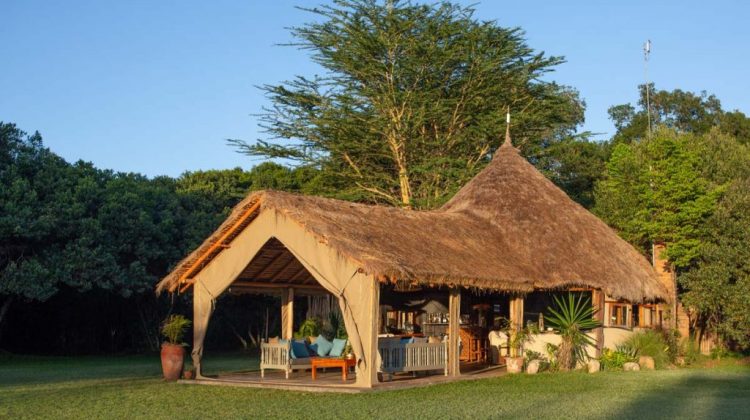
House in the Wild is a family owned boutique lodge on the edge of the Masai Mara. We asked owner Lippa Wood what life has been like in lockdown.
The moment coronavirus was called a pandemic our lives here at House in the Wild began to change. By the time Kenya’s lockdown was officially announced we had lost all our high season bookings and our initial feelings that normality would bounce back as quickly as abnormality had struck were long gone.
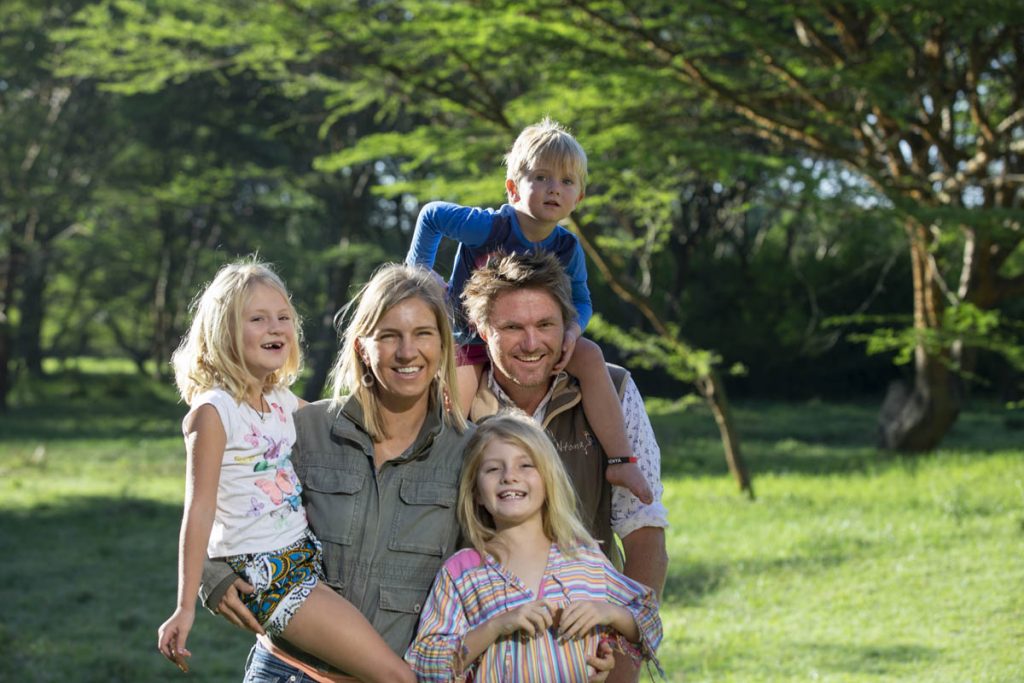
Lippa and her family
My calm morning ritual of enjoying a coffee whilst walking barefoot on the wet grass to check the level of the Mara River during the rainy season seems a thing of the past now as we navigate the crisis of cancellations, postponed bookings, lost revenue, paying back deposits, and working on a survival strategy.
House in The Wild is an eco-tourism project that we started from scratch on the edge of the Maasai Mara, and we realise now that so much of what we had built is at stake. Ten years ago, before we opened the lodge, before we had begun the re-wilding project, there was virtually no wildlife in the area and no tourism, the local community had no employment and it was not receiving any of the financial, health and educational support it is now.
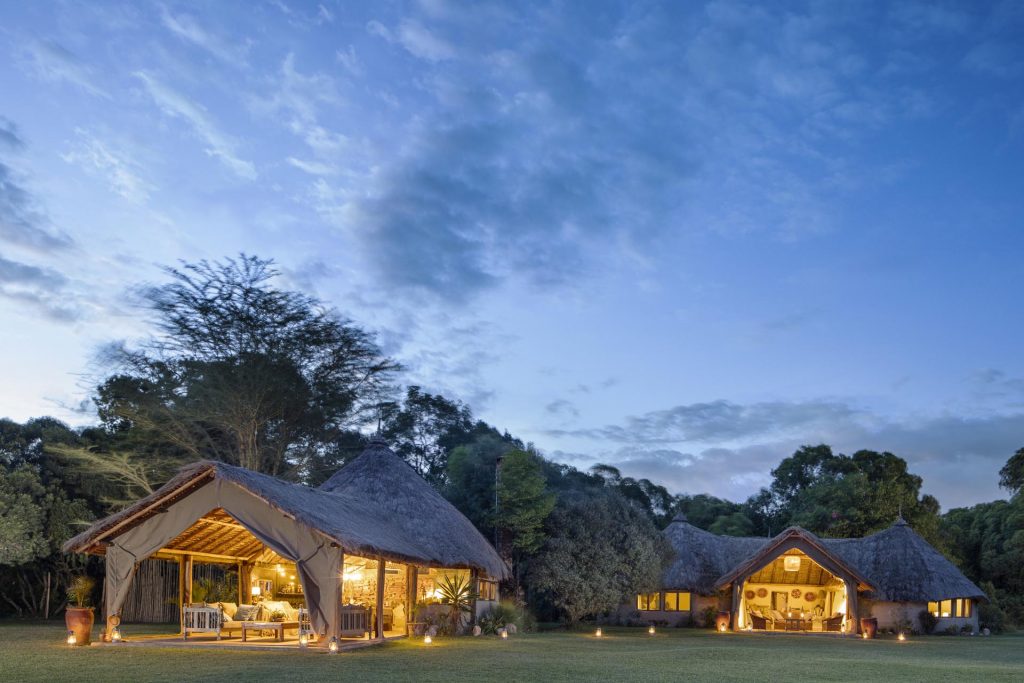
House in the Wild
Through these intense times, we are trying to think beyond the lodge, and doing what we can to support our local community, health clinic and schools. Through fundraising with friends and guests we have had 1,000 masks made for our local community, and more are coming. We are raising money to provide clean water for the local health clinic which will go a long way in saving many lives and is a permanent solution that will help the community long after the coronavirus pandemic.
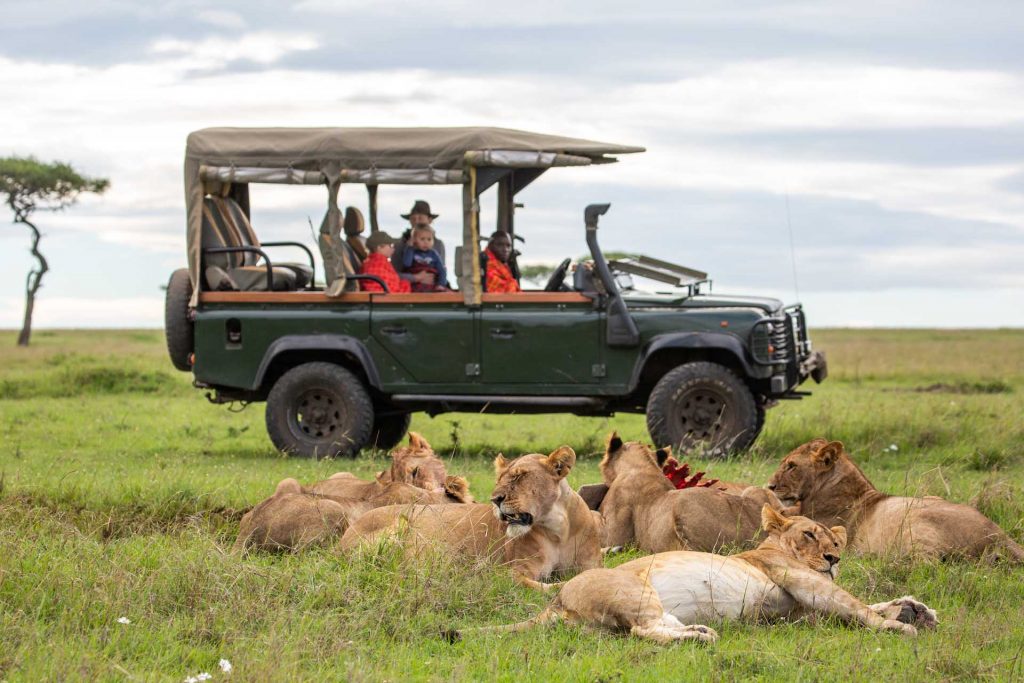
Exploring on a wildlife drive
As well as the effect on the community we are deeply concerned for the beautiful wildlife and wilderness around us. Camps and lodges across Africa need the conservation fees raised through tourism. Last year the $90,000 we raised through our eco-tourism enterprises went to the Maasai community to protect wildlife on their land. We also employ rangers who, as well as protecting wildlife, oversee the implementation of a grazing plan that ensures enough forage for the community livestock as well as conserving wildlife habitats. Without guests, we have no conservation fees, or money to pay the rangers. Will we see an increase in human wildlife conflict? Probably. Will we see more poaching? Very likely.
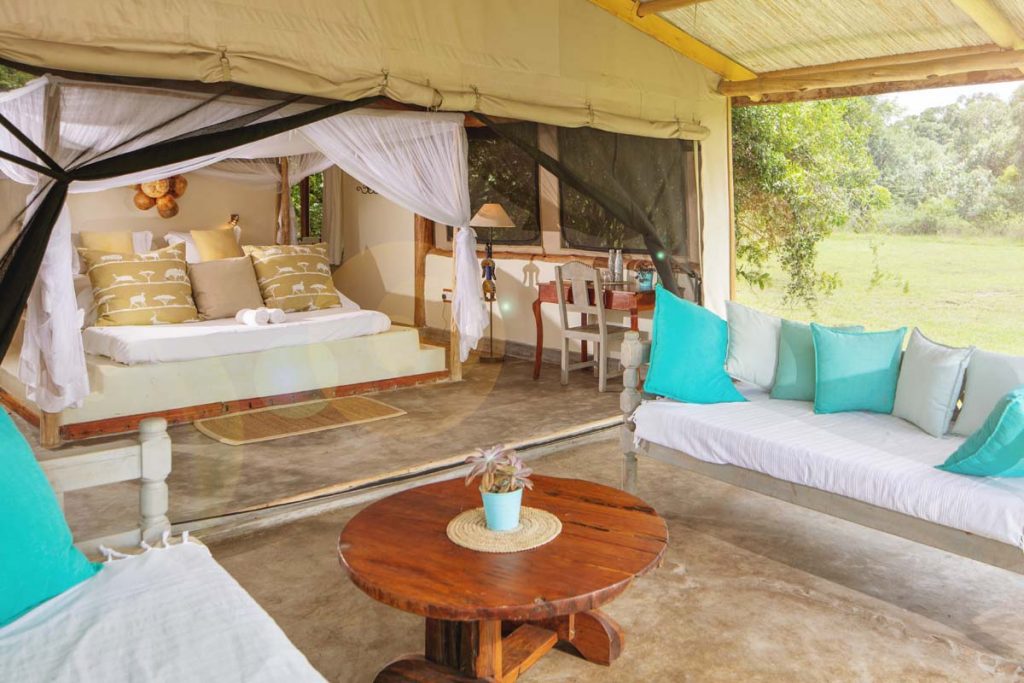
One of the bedrooms at the lodge
Now a few weeks into lockdown, we are trying to embrace the slower pace of life. With fewer people around, we’ve enjoyed quality time as a family. It is important to see beauty in the small things and the wildlife around us: hippos grazing outside our windows in the morning, warthogs becoming tamer and the dik diks more curious. It’s not without moments of humour either. The baboons have become increasingly brave and without watchmen or staff we seem to have a daily battle with the troop on the verandah pulling plants out of pots and uprooting newly planted trees. After going to get tea one morning I found my husband streaking, naked, across the lawn, chasing the baboons. When he saw me he managed a cartwheel, the baboons and I looked at each other, raising one eyebrow in unison. I think the isolation is getting to us.
The children are in charge of egg collecting and feeding the cats and the dogs. We’ve cleaned out the stores, the fridges, and reorganised the pantries – jobs that had been put off for years have been fulfilling and helped keep our minds in the moment, rather than worrying about the unknown.
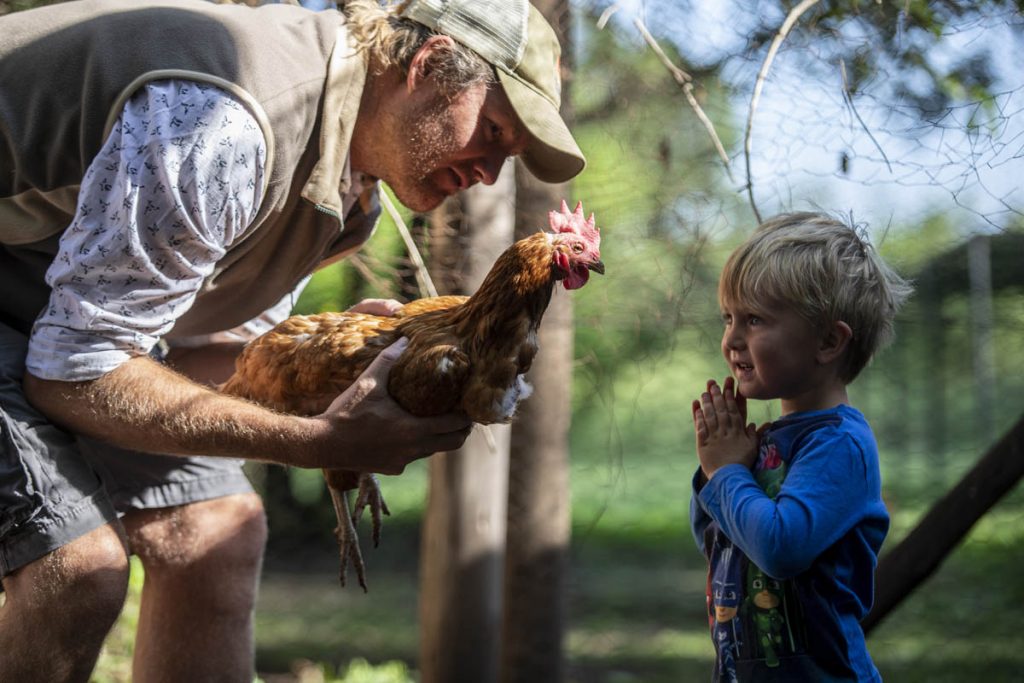
Out with the chickens
Of course we think about the future. My hope for travel post coronavirus is that people become more conscious, more thoughtful travellers. I do believe more enriching travel experiences will become the norm. We have been overwhelmed by the support from previous guests and the responsible operators we work with, like Aardvark Safaris, who are continuing to encourage bookings for next year, and trying to encourage visitors to really think about where they stay.
What next?
If this account of life in a safari lodge has inspired you to dream about future safaris, please do get in touch – we would be delighted to chat, no matter how early in the decision making process you might be. Email is probably the best way to contact us right now and we’ll respond as quickly as we can – usually on the same day. We very much look forward to talking to you
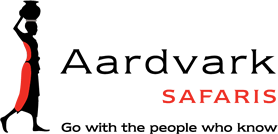
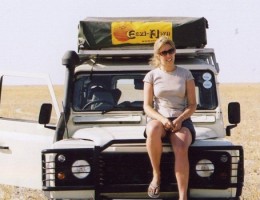
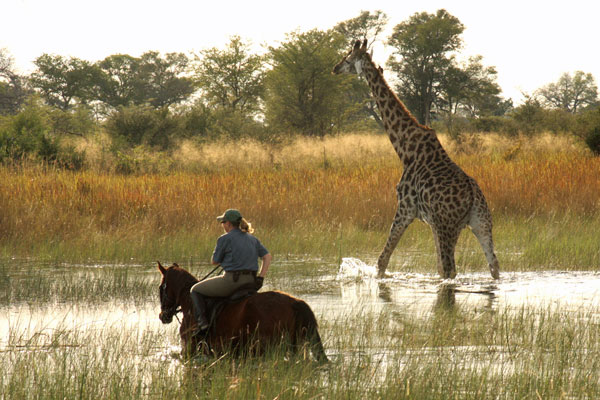
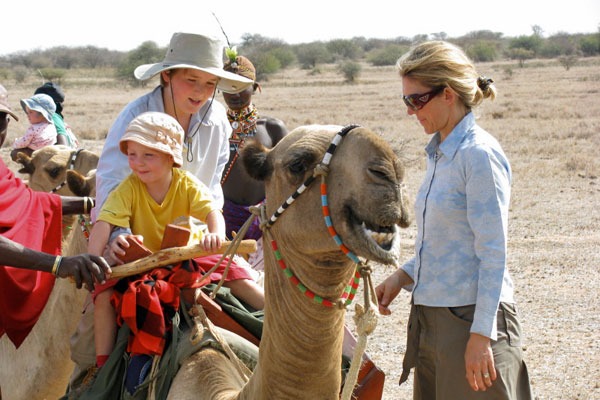 Camel safari, Kenya, Laikipia,
Camel safari, Kenya, Laikipia, 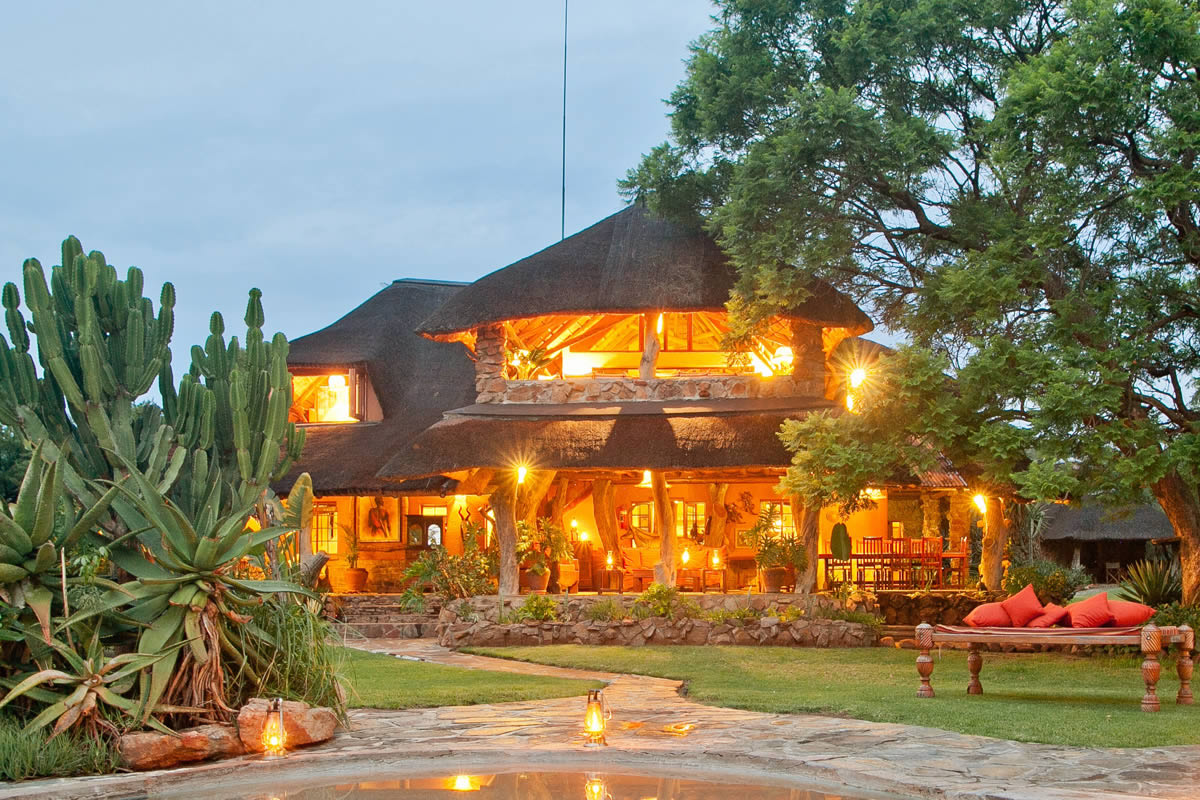 Luxury safari accommodation Waterberg, South Africa,
Luxury safari accommodation Waterberg, South Africa, 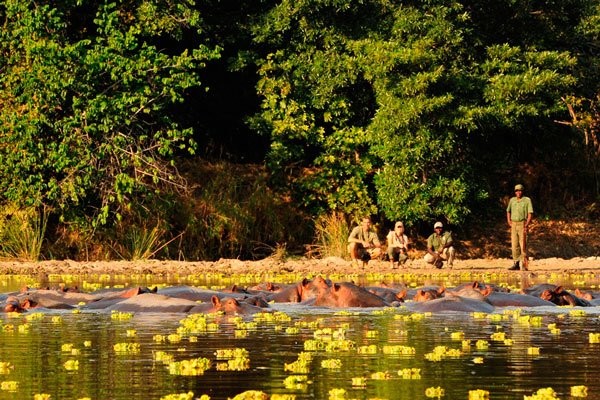 Hippos on a walking safari, South Luangwa, Zambia,
Hippos on a walking safari, South Luangwa, Zambia,
Leave a Reply